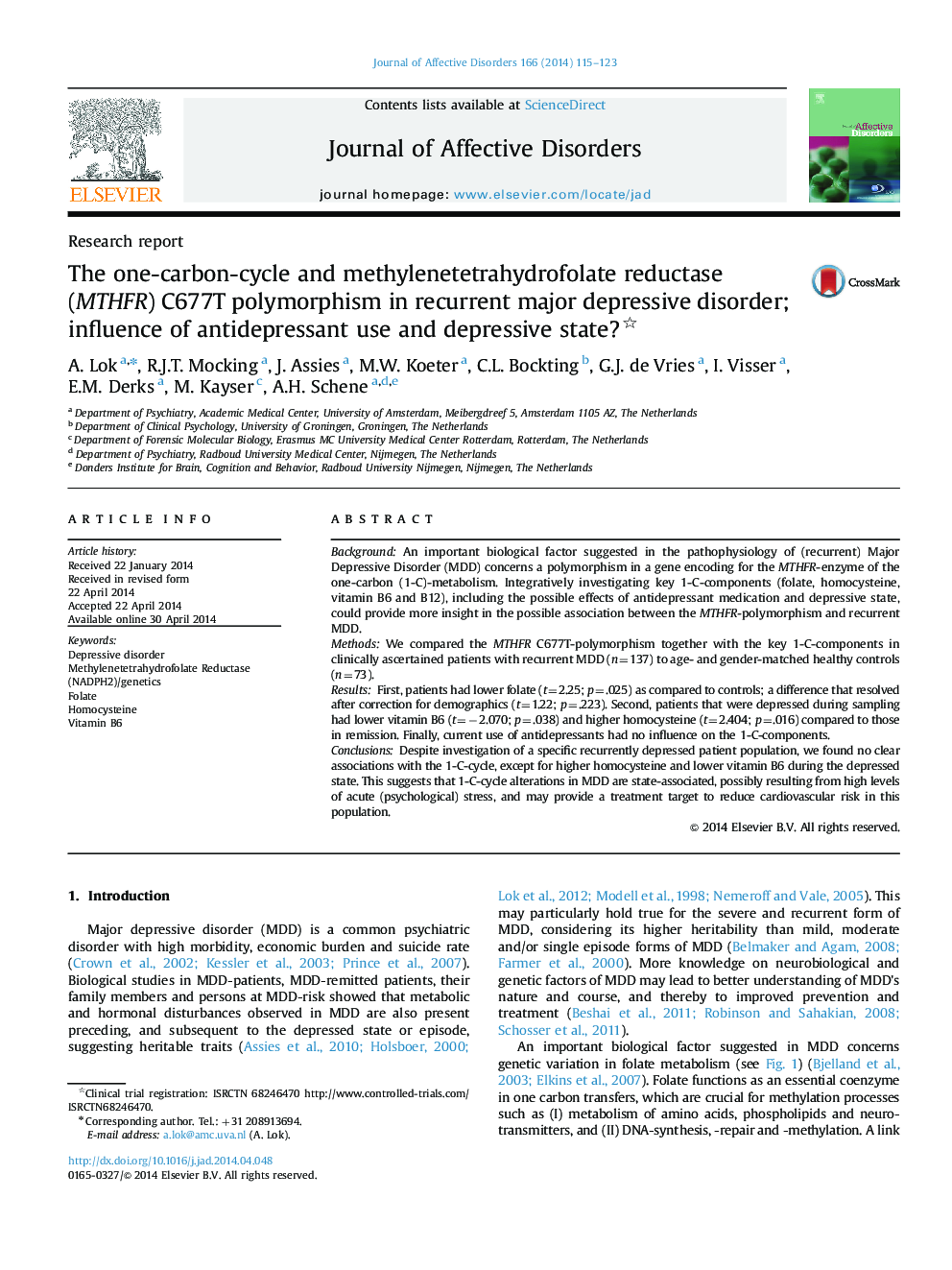| Article ID | Journal | Published Year | Pages | File Type |
|---|---|---|---|---|
| 6232494 | Journal of Affective Disorders | 2014 | 9 Pages |
BackgroundAn important biological factor suggested in the pathophysiology of (recurrent) Major Depressive Disorder (MDD) concerns a polymorphism in a gene encoding for the MTHFR-enzyme of the one-carbon (1-C)-metabolism. Integratively investigating key 1-C-components (folate, homocysteine, vitamin B6 and B12), including the possible effects of antidepressant medication and depressive state, could provide more insight in the possible association between the MTHFR-polymorphism and recurrent MDD.MethodsWe compared the MTHFR C677T-polymorphism together with the key 1-C-components in clinically ascertained patients with recurrent MDD (n=137) to age- and gender-matched healthy controls (n=73).ResultsFirst, patients had lower folate (t=2.25; p=.025) as compared to controls; a difference that resolved after correction for demographics (t=1.22; p=.223). Second, patients that were depressed during sampling had lower vitamin B6 (t=â2.070; p=.038) and higher homocysteine (t=2.404; p=.016) compared to those in remission. Finally, current use of antidepressants had no influence on the 1-C-components.ConclusionsDespite investigation of a specific recurrently depressed patient population, we found no clear associations with the 1-C-cycle, except for higher homocysteine and lower vitamin B6 during the depressed state. This suggests that 1-C-cycle alterations in MDD are state-associated, possibly resulting from high levels of acute (psychological) stress, and may provide a treatment target to reduce cardiovascular risk in this population.
